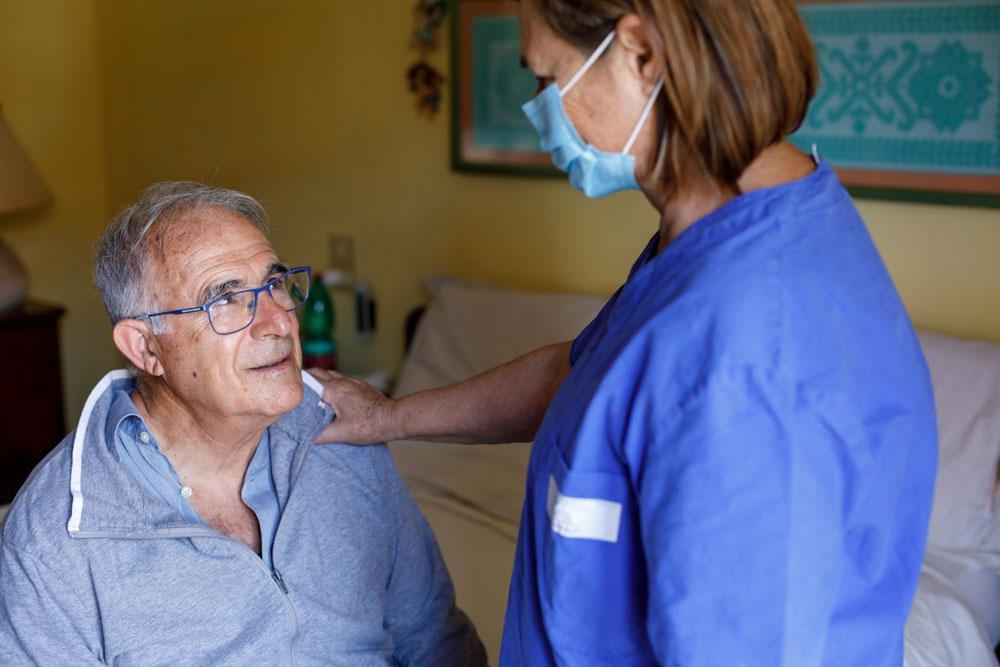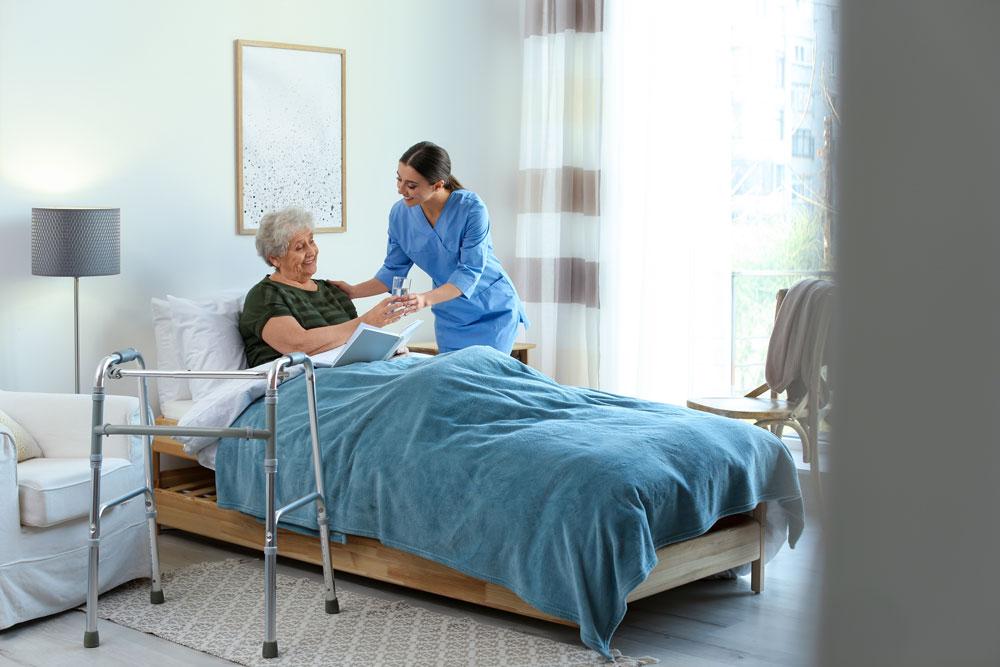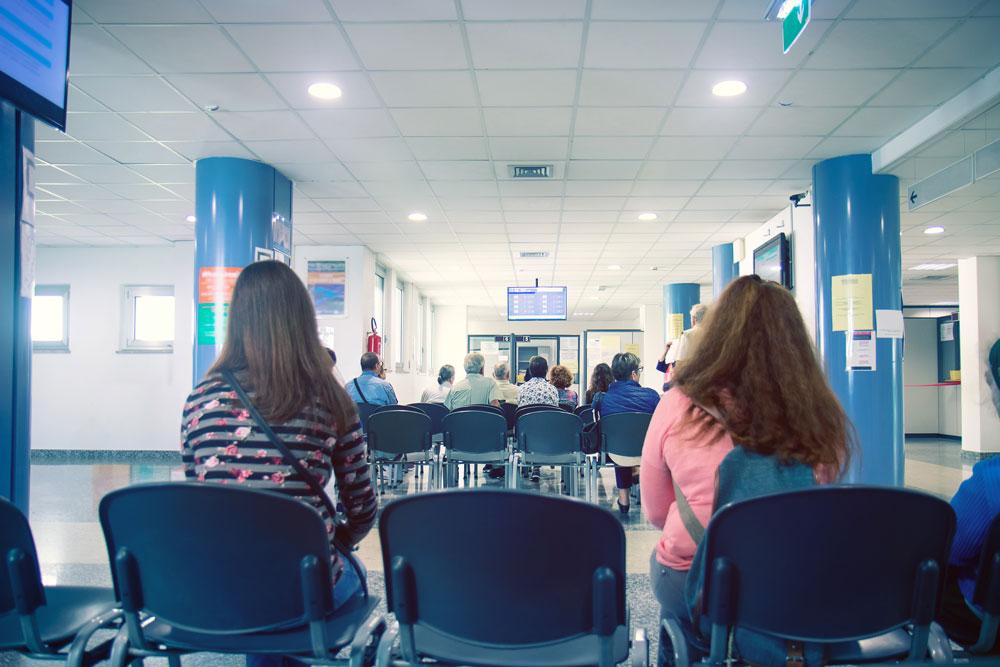The British Parking Association explain how hospital parking charges can be managed sensitively by taking into account the needs of patients and visitors
Only hospitals in England and Northern Ireland charge for parking now, with the latest figures revealing £174 million was made last year from parking charges in England. In Scotland and now Wales hospital parking is described as free, however there is no such thing as free parking; it costs to maintain, manage, keep clean, light and equip car parks. Much of what is taken in charges is invested back into maintaining the car parks. If there were no charges these costs would come from somewhere; most probably out of the healthcare budget, which is an expensive drain on the NHS. With charging it is also possible to manage the high demand for parking spaces at hospitals, give concessions for patients and carers who are frequent or long term visitors, and prevent commuters and shoppers from using the car parks.
The Patients Association in Scotland, where parking is now free, have said that patients sometimes struggle to find spaces and consequently miss appointments or park elsewhere and walk to the hospital. Research this year on how foundation trusts in England manage their car parks reveals 15 trusts don’t charge to park, 48 charge and keep all the income after maintenance costs are paid for, eight are given some money from the outsourced parking operator, and just 10 don’t receive any income from the outsourced parking operator. This finding is from 81 out of 120 foundation trusts answering a Freedom of Information request.
The British Parking Association (BPA) has long been interested in hospital parking and worked with our members and the Department of Health to produce an excellent guide to support NHS trusts in managing their parking: NHS patient, visitor and staff car parking principles – Rules for managing car parking in the NHS.
Here is a great example of how hospital parking charges can be managed sensitively taking into account the needs of patients and visitors as well as the need to pay for the maintenance and upkeep of the car park itself.
Listening to hospital patients and visitors
The association between charging for parking and at the same time caring for hospital patients and visitors is not often made, however Melanie Ray and Lisa Redfern are a dynamic parking management duo who are on a mission to achieve just that, at the University Hospitals of Derby and Burton Teaching Hospitals. With over 15 year’s experience between them they manage the continual demand for parking spaces. It is an in-house contract so they are hospital employees as opposed to working for a car park operator. The operation does make a surplus and all of this - one third of the revenue collected from car parking, is reinvested into patient care and the remainder is spent on car parking maintenance and security, land rental and rates.

How big are the car parks you manage at Derby and Burton Teaching Hospitals?
We have 1200 patient and visitor car park spaces divided over eight car parks.
What would you say is key to the way you manage the car parks?
We listen to what patients and visitors are saying when patients and visitors tell us they are not happy we try and figure out how we can make parking a little easier for them.
What is special about Derby and Burton Hospital?
We have the extra challenge of having thousands of frequent visitors who come especially to the hospitals nationally renowned clinics and the demand for parking is round the clock every day of the week. For example, we have thousands of renal patients that come to our award-winning renal departments each year.
What concessions have you implemented at the car park?
We have devised many concessions which we have rolled out one at a time over the last few years, including: 33 free spaces for disabled drivers; 40 renal patient permits and reduced annual permits for renal patients; 17 wide access vehicle spaces for wheelchair users; £1 charge per visit for radiotherapy patients; chemotherapy patients flat rate of £3.20 per visit; clinic and outpatients reduced charge when the department stamps the ticket; and a reduced evening rate.
This is an amazing array of concessions. Why did you feel a need to introduce them and how to you publicise them?
Once again we listened to what the patients and visitors were making comments about, in our Patient Experience in-house surveys. We publicise these concessions on the internet and the hospital web pages. They are advertised in the clinics and departments on notice boards in all of the waiting and sub-waiting areas. There is also information displayed on pull-up banners at the entrances to the hospital.
How do you manage the high demand for daytime parking?
Many of the hospital clinics run every day which means the demand for spaces often out strips supply during the day. So we introduced a cheap evening tariff to encourage visitors to come during evening visitor hours.
Why did you introduce a clinic and outpatients reduced charge?
We found talking to patients, that many have more than one appointment within the hospital. These can often take more time than they expect, so we devised a system whereby patients can ask for the clinic or outpatient department to stamp their tickets and they are charged a reduce rate. Patients really appreciate having the peace of mind that they will not be expected to pay more than two hours for an appointment.
How do you manage parking charges for hospital staff?
We have an incentive scheme for staff to car share or have a parking partner as well as a bike scheme for those who cycle and walk.
What would you say is your most innovative concession?
We are particularly proud of what we have called our Carers Comfort Packs which supports relative whose loved ones are at the end of their lives. It contains two parking tokens, a meal voucher, leaflets (on the chaplaincy, preparing for losing your loved one and the pop-up bedroom and volunteer sitters) and an open visitor card. This card will exclude the visitor from having to visit during the normal visiting times, enabling them to visit at any time and stay as long as they want to.
Visitors are grateful of this, explaining that it is very difficult to leave a loved one that is very anxious or at the end of life.
Are you ready to take electric vehicles?
Yes, so far we have invested in two onsite and four offsite charging points and our Transport and Sustainability Officer is seeking funding to increase the charge points as the number of EV owners increases.
What do you like most about your job?
No two days are the same and we meet people from all walks of life, including new parents. We come to work at 8am, hit the floor running and often find ourselves helping people and having conversations with patients every day.
How can other hospitals learn from your experience?
A few hospitals who have car parks that are contracted out have spent a day with us recently to see how their car parks can be managed in-house and how it works in practice. It’s definitely an investment, however with about a third of the car park income going back into paying for patient care it is certainly an attractive prospect for hospitals.
The BPA recognises hospital car parking charges can disproportionately affect some groups, such as motorists with disabilities, frequent outpatient attendees and relatives of long-term patients who need to visit regularly. BPA agrees that concessions, including free parking or reduced or capped charges, should be available for these groups, and are working with Government on this issue. Where they are available, be it the NHS Healthcare Travel Costs Scheme or as concessions for patients with long-term illnesses or conditions that need ongoing treatment, we believe it’s the role of the NHS Trust to communicate this information to patients and visitors and encourage them to do so.





